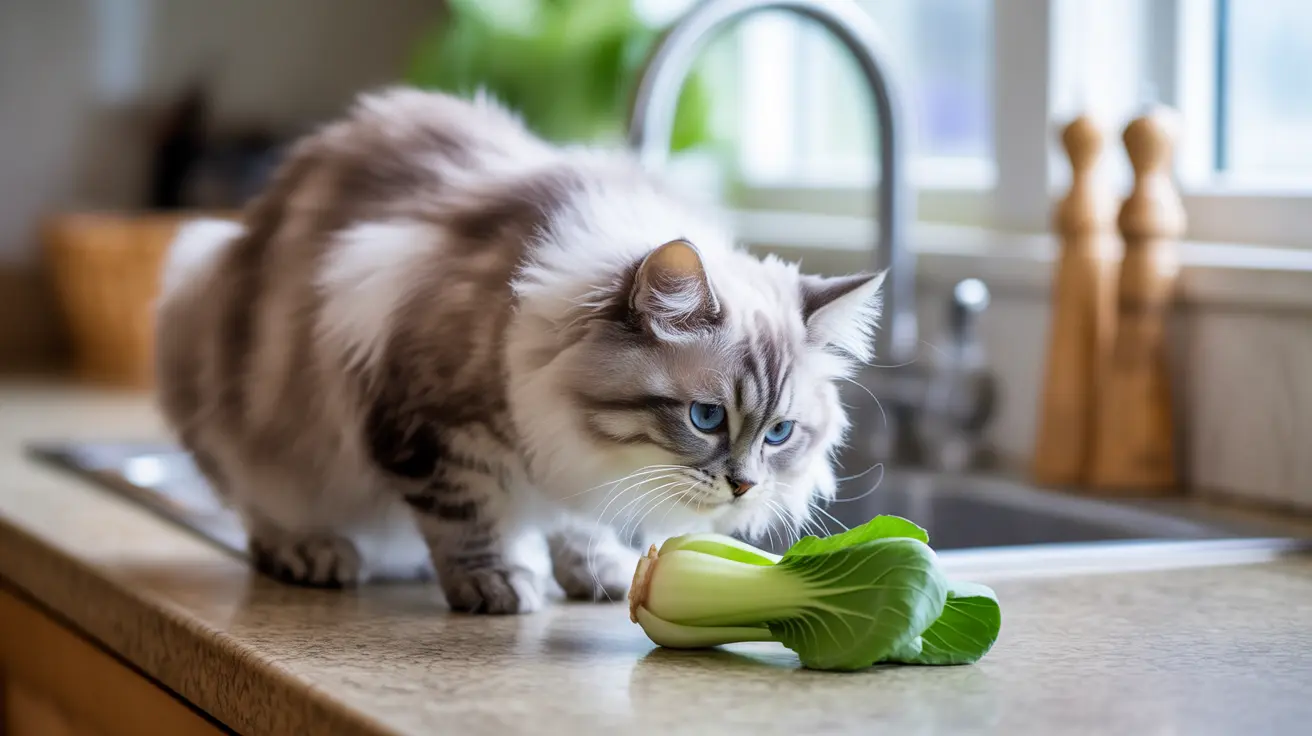If you're considering sharing some bok choy with your feline friend, you're not alone. Many cat owners wonder about the safety of feeding this nutritious Chinese cabbage to their pets. Let's explore everything you need to know about cats and bok choy, from safety considerations to serving guidelines.
While cats are obligate carnivores who primarily need meat-based proteins, certain vegetables can be offered as occasional treats. Bok choy falls into this category, being non-toxic and generally safe for cats when properly prepared and served in moderation.
Understanding Bok Choy and Your Cat's Diet
Bok choy is a nutrient-dense leafy green vegetable that belongs to the cruciferous family. While it offers numerous health benefits for humans, cats have very different nutritional needs. Their digestive systems are specifically designed to process animal proteins, not plant matter.
Despite not being a necessary part of your cat's diet, bok choy can be offered as an occasional treat if your cat shows interest. The key is moderation and proper preparation.
Safety Guidelines for Feeding Bok Choy to Cats
When introducing bok choy to your cat, follow these essential safety guidelines:
- Always wash the bok choy thoroughly to remove pesticides and contaminants
- Cut into small, manageable pieces to prevent choking
- Start with tiny amounts to test your cat's reaction
- Cook the bok choy to make it easier to digest
- Never season or add oils to the vegetable
Potential Benefits and Risks
Benefits
While not nutritionally necessary, bok choy can offer:
- Additional hydration
- Dietary fiber
- Environmental enrichment
- A novel texture experience
Risks
Be aware of these potential concerns:
- Digestive upset if overfed
- Possible thyroid effects due to goitrogenic properties
- Choking hazard if not properly prepared
- Risk of gas and bloating
Proper Serving Size and Preparation Methods
When offering bok choy to your cat:
- Limit portions to a few small pieces
- Steam or boil until soft
- Serve plain, without seasonings
- Offer no more than once or twice per week
Frequently Asked Questions
Can cats safely eat bok choy, and how much should I give them?
Yes, cats can safely eat bok choy in small amounts. Offer no more than a few small pieces, once or twice per week, and always cook it first to make it easier to digest.
What are the potential health benefits and risks of feeding bok choy to cats?
While bok choy provides some fiber and hydration, it offers minimal nutritional benefits for cats. Risks include digestive upset, gas, and potential thyroid effects if fed in large amounts.
How should I prepare bok choy before offering it to my cat?
Wash the bok choy thoroughly, cut it into small pieces, and cook it until soft. Serve plain without any seasonings, oils, or additives.
What signs of digestive upset should I watch for if my cat eats bok choy?
Monitor your cat for vomiting, diarrhea, excessive gas, or changes in appetite. If any of these symptoms occur, discontinue feeding bok choy and consult your veterinarian.
Are there any vegetables that are toxic to cats that I should avoid?
Yes, several vegetables are toxic to cats, including onions, garlic, leeks, and members of the nightshade family (tomatoes, raw potatoes). Always research or consult your vet before introducing new foods.
Conclusion
While bok choy is safe for cats in moderation, it should never replace their regular meat-based diet. If you choose to offer this vegetable as a treat, do so sparingly and with proper preparation. Always observe your cat's reaction to new foods and consult with your veterinarian if you have any concerns about their diet.






